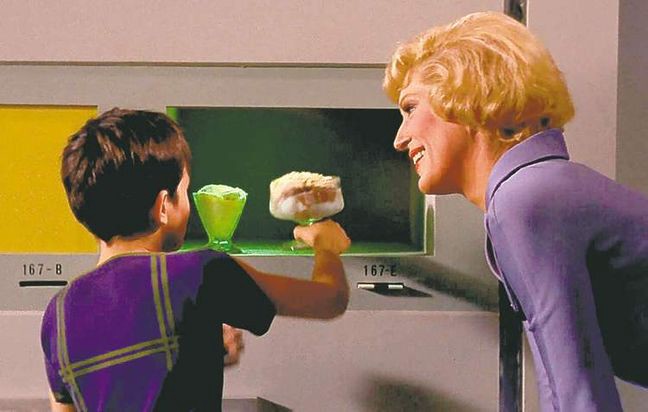
I’ve seen the future and it works!
I am working as a product manager for the biggest CEE flash sales retailer (Vivre) for a bit over one year. My experience so far has been a blast. But not as in “pampering my HR review”, we have none. I say that as in observing the future taking shape by just coming at work everyday.
I believe the future of electronic commerce is flash sales.
Initially e-commerce inherited the paradigm of brick and mortar: shop, shelving, storage and stock. But the more we head into the future, the less of this paradigm we’ll get to see.
E-commerce now has all the means for a fully automated and customised experience. There is room for various platforms to emerge and provide this third party. Businesses can finally accrete the expertise to build automation and customisation in house. Nothing will stop this trend. This alone melts the paradigms of stock and shelving. Since you can predict what each customer wants to buy, then there is no reason to buy, store and wait.
The competition of the future commerce players will be among customer profiling algorithms. Perks are how you get customers in a world where distance is meaningless and mobility common. Somehow it will be like what tech talent recruiting is today: all about perks and culture fit.
The commerce base idea is holding us back. It is not commerce anymore. There is no more bargaining. No more merchants bringing stuff to the market. It is a service where people pay to have stuff there when they need it.
Flash sales platforms are already in the future. The model is simple: identify low distribution awesomeness and sell it for a flash of time. Sell based on novelty then import and deliver. No stock. From here on the details flow: some optimize, some don’t. Some deliver faster with superior delivery processes, some by building stock (lol).
But the thing is we have a super modern approach to people getting what they want. Currently flash sales are only want driven. Need driven purchases have not been challenged yet by this model.
Flash sales are solely “aspirational”: home and decor, fashion etc. Hence we must employ a big human force for handpicking everything. Suppliers, products and sale concepts, everything goes by a human.
But in the future flash sales with no stock will slide into the land of basic products. Just wait for delivery to be a solved, automated issue.
Just imagine the possibilities.
At Vivre we have tested this summer the Amazon Machine Learning service. The goal was to create computer generated sale events with higher conversion rates. With more than two years of data in the system it was a breeze. This was simply not possible just a few years back. We’d need huge server investments, hiring statistics engineers and whatnot. But now we did CSV exports and waited on the cloud. It was akin to waiting on ye old Delphi oracle to predict your kingship.
Imagine how these AI-like systems will funnel through millions of orders. How they learn from each order then predict buying behaviours for each customer. Connect that with the huge trail of re-marketing data and predictive sales don’t seem so far fetched.
Technologies that were once reserved to huge entrenched corporations are now so easily accessible. Another example is real time data. This used to be an esoteric domain of huge budget, stock trading IT projects.
At Vivre we are no Amazon or Wayfair. Yet we employed ElasticSearch for real time reporting, with minimal effort. With the costs so low we afforded test servers and virtual unlimited backup of data. Once the infrastructure was in place the development team got engaged. They built in weeks a stats system that showed the whole company real time streams of anything. A single product’s performance to customer behaviours, category and sales stats, and so on.
This means technology is no longer an obstacle but an open gate into a paradise of tools. In the future of flash sales machine learning, combined with systems that provide real time data streams, will enable businesses to provide extreme customisations. For example, it is likely that virtual assistants such as Siri or Cortana will tap into e-commerce platforms’ data to provide you answers to meta questions such as “what should I wear Saturday Evening?” or “what should I cook for dinner?”. There is no need to have any kind of stock as a store for that. With drones for delivery, couriers that are virtually invisible for the end user and real time data constantly analysed and processed, by the time the evening comes produce from nearby farms, meat from your preferred butcher and spice imported from India will be waiting in a refrigerated, recyclable container by your door.
E-commerce companies do have a huge challenge though:
staying relevant.
Since the Internet is the big platform enabler, niche business will become thinner and thinner, squeezed to exhaustion by platforms. Giant selling machines tap into all domains and areas and smaller players have far less resources and reach. The recent kerfuffle with ad blockers lit a huge red alarm for all customer renting products online: if you cannot re-market like crazy and your loyalty KPIs are negative how will you still sell?
Small companies can only stay relevant, and I believe this applies to more than e-commerce, by making one thing really, really awesome: customer experience. This is the only thing that cannot be commoditised in the near foreseeable future. How? Well that’s a topic for another diversion.